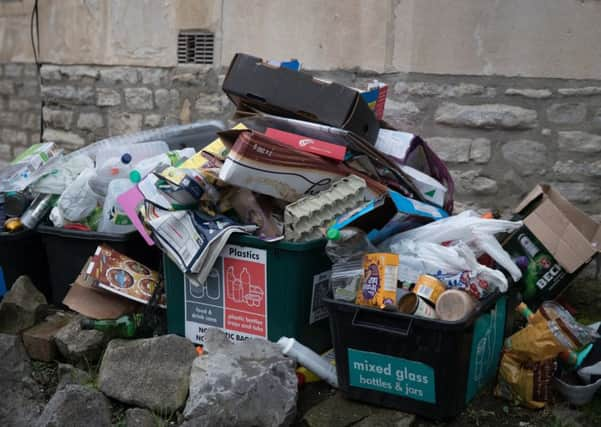Adrian Roper: New deposit system for greener society


This won’t be the kind of one-manufacturer, one-material system that Barrs used to operate for their glass bottles. Fewer and fewer people know that this system even existed, which won’t be the case with a national system. Scotland will instead have the kind of modern and efficient deposit system used across much of Europe.
There’s a myth going around that retailers were opposed to this idea, and another myth that it will be bad for business. Just as on the carrier bag charge, there are many supporters. In fact, the NFRN, the Federation of Independent Retailers, formally voted to support a deposit return system for Scotland.
Advertisement
Hide AdAdvertisement
Hide AdOur members are responsible and want to operate in communities not blighted by litter. We want to stock better products, more of which are made from recycled materials.
Modern deposit systems work well for retailers and the public in places like Norway or Estonia, where almost twice as many empties are recycled as in Scotland. The circular economy means more jobs are retained locally, too. We are pleased that all these benefits will now come to Scotland too, including to retailers.
That doesn’t mean we don’t have concerns about details and some are pretty important. Modern deposit systems pay retailers a small handling fee for every empty can and bottle they collect: we want to make sure that fee is sufficient to make collection cost neutral.
It could be much better, though. The Scottish Government has already published figures showing the net benefit to retailers of a deposit system could be up to £8.7m a year, and the NFRN wants to make sure that small retailers see their fair share of that income boost.
We also want to make sure that shops can choose not to accept materials they don’t sell. Efficiency of collection is also going to be important. Small shops have a problem with the reliability of trade waste collections in some parts of Scotland, and a system where you can request a same-day collection via your phone, as in Norway, would be great to see. The system will need to work just as easily for retailers who don’t take card payments, which includes many of our members, especially in rural areas.
We also believe that smaller shops should be able to opt out. In Norway, those below 200 sq m can do so. In Lithuania, it’s 300 sq m. Our members will have views on that and we are confident they’ll be heard.
There are good and bad ways to implement a deposit system, but we know what the good ones look like, especially in Scandinavia and the Baltics. Our counterparts in the Lithuanian Retailers Association – where deposits were introduced last year – have said “with absolute confidence that it was the right thing to do”.
The time has passed for claims that a refundable deposit is a consumer tax, or that retailers won’t be able to make money. Instead, the responsible thing for retailers to do is to take part in discussions, to accept the clear benefits for the public, for the environment, and for business, and to make the case for designing a Scottish system that will work well.
As with the carrier bag charge, in a couple of years we will look back and wonder why anyone ever opposed the idea.
Adrian Roper is head of public affairs and communications at the NFRN